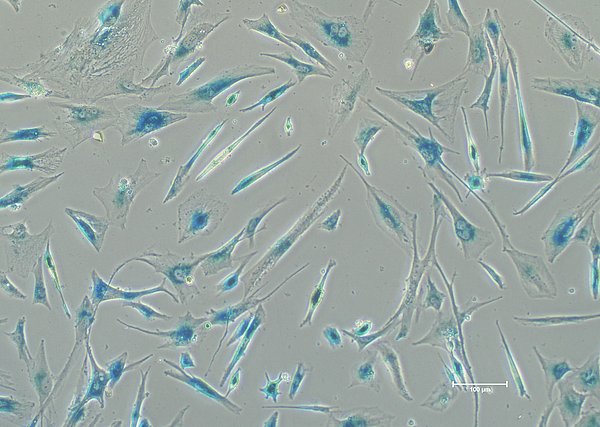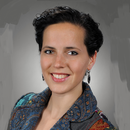The Hopp Children’s Cancer Center Heidelberg (KiTZ) is a joint institution of the German Cancer Research Center (DKFZ), Heidelberg University Hospital (UKHD) and the University of Heidelberg (Uni HD).
Every year, around 500 children and adolescents are diagnosed with a brain tumor in Germany - and the disease remains the most common cancer in children and adults under the age of 40. Pilocytic astrocytomas are the most common type of benign brain tumors. They are slow-growing gliomas that develop from star-shaped brain cells called astrocytes, which support nerve cells in the brain. Treatment usually includes surgery, chemotherapy and radiation therapy.
Thanks to advances in treatment, the vast majority of children diagnosed with low-grade glioma survive at least ten years. However, about half of all children experience a relapse of the disease during this time, requiring them to undergo further rounds of treatment, which can have significant long-term consequences and severely impact quality of life.
Previous studies have found that a significant proportion of cells in pilocytic astrocytoma tumors are in a dormant state called "oncogene-induced senescence" - in which they stop dividing but also do not die. These "dormant" cells are insensitive to conventional cancer treatments such as chemotherapy, which only affect dividing cells, and are thought to be a major cause of recurrence of pilocytic astrocytomas in children.
Now, researchers at the Hopp Children's Cancer Center Heidelberg (KiTZ), the German Cancer Research Center (DKFZ) and Heidelberg University Hospital (UKHD) have developed the first therapeutic approach that precisely targets these tumor cells in "sleep mode". A study funded by the Brain Tumor Charity found that a new class of drugs that block certain proteins - called BH3 mimetics - can effectively attack and kill the dormant brain tumor cells.
The researchers, led by Till Milde, working group leader at KiTZ, as well as DKFZ and senior physician at UKHD, and Florian Selt of the Everest Centre at the Hopp Children's Cancer Center Heidelberg (KiTZ), have used these new findings to pave the way for a clinical trial to investigate whether BH3 mimetics can improve the long-term outcomes of children with pilocytic astrocytoma.
"Our study with patient-specific tumor cells provides the first promising data for a novel therapeutic approach that kills dormant tumor cells in low-grade gliomas in children and adolescents. If we succeed in eliminating these, we could prevent relapses, which are a particular problem in this type of brain tumors ", said Till Milde, lead investigator of the study, "We hope that by eliminating this tumor cell fraction using this new therapy, affected patients will respond better and suffer fewer relapses. Our study provides the foundation for the upcoming Phase I/II clinical trial, which we hope will translate the findings into clinical practice."
About The Everest Center
The Everest Center is a world-leading collaboration that brings together brain tumor experts from the German Cancer Research Center (DKFZ) in Germany and University College London (UCL) and Queen Mary University London (QMUL) in the United Kingdom. Launched in 2017, the project is funded by the UK Brain Tumour Charity to the tune of nearly € 6 million.
Orginal publication:
Selt, F., et al. BH3 mimetics targeting BCL-XL impact the senescent compartment of pilocytic astrocytoma. In: Neuro Oncology. DOI: 10.1093/neuonc/noac199




